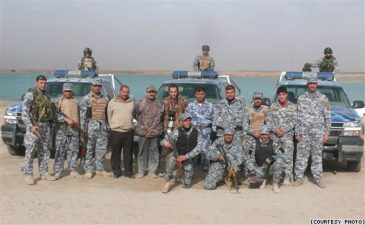
Nearly seven percent of adolescent Iraqis have smoked shisha, and more than three percent have smoked tobacco, raising concerns among health officials about future diseases that could arise as a result. This was one of the findings of the Global Youth Tobacco Survey carried out recently by Iraq’s Ministry of Health.
Shisha, also known as a water pipe or hookah pipe, has gained immense popularity in the Middle East. The fact that it is so popular among Iraq youth is a red light for health officials in Iraq and is prompting officials to launch campaigns warning against the hazards of this practice and to prepare for future diseases that could occur among the adult population.
“It used to be only older aged men smoked it, but recently it’s spread to all age groups,” Dr. Naeema Al-Gasseer, the World Health Organization’s representative in Iraq said.
“More studies are showing that smoking is one of the leading causes of death and it’s a great public health concern, whether it’s shisha or cigarette smoking.”
Shisha, studies show, is even more harmful than cigarettes, because of the intensity of the exposure over a short period of time compared to cigarette smoking which is less intense with each smoke, Al-Gasseer told The Media Line.
The report, a school-based survey among adolescents aged 13 to 15, suggested that shisha was the preferred form of tobacco used among young people in Iraq.
Overall, 13% of youth who have never smoked indicated they might initiate cigarette smoking in the next year.
The survey will be used to predict problems the healthcare system is likely to face in the future, especially since Iraq is a young country, with around 43% of its population under the age of 19.
“We know that tobacco smoking is a cause of mortalities and diseases. If we’re not alert to promoting healthy behavior, especially among youth, and prevent diseases, this will cause more risk factors for diseases such as heart problems, high blood pressure and diabetes,” Al-Gasseer said.
The government is not only using the survey to plan its health system and tackle future problems, but is also cooperating with the Ministry of Education and the parliament to prevent smoking, making the public more aware of the health hazards it entails, and promote legislation to stem the habit.
“The challenges Iraq has now, including parliament, is to push for legislation, to push for taxation on cigarettes, legislation to eliminate proactive advertisements for tobacco and prevent sponsorship of tobacco companies for health and development programs,” Al-Gasseer said.
She noted there were already positive changes in government, manifested in the increase in non-smoking areas in government buildings, a practice that was not in place two years ago.
Compared to other countries in the region, smoking among adolescents in Iraq is still relatively low. However, health officials are concerned about the dramatic shift in behavior of Iraqi youth, which corresponds to similar behavior in other Middle Eastern countries.
“In Jordan, Syria, Lebanon and the Gulf there’s an increasing number of youth smoking shisha and the families accept it,” she said. “When you ask them why, they believe that shisha isn’t harmful. That’s a misconception. It’s no longer limited to certain socio-economic classes and Iraq is just picking up in this.”
The report coincided with reports in the Syrian news agency SANA that Syrians spend up to $600 million a year on tobacco and cigarettes, despite a ban on advertising and smoking in public.
Smokers in Syria spend on average 8% of their income on tobacco, the Syria Tobacco Institute said, and the number of smokers in Middle Eastern countries is on the rise, despite government attempts to reverse this trend.
A recent television report in Iraq underlined the problematic aspect of how shisha had become an acceptable norm in Iraq. The report linked the growth in numbers of shisha cafes to an improving security situation in the capital, Baghdad.
“People talk about it as a good thing and don’t see that it’s harmful” Al-Gasseer said.
Age limitations for purchasing cigarettes are in place in Iraq but are not enforced, and health hazard warnings on cigarette packs do exist but are often not visible.
“I know that the tobacco-control program at the Ministry of Health is very active and we are working hard with them to provide technical support,” she said.
This story is reprinted from the Mideast News Source, The Media Line
Image credit: Man Smoking Hookah, Shutterstock



